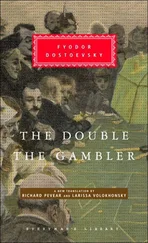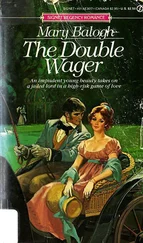“He had his photographs.”
“And he never let those out of his sight.”
“Did you ever frighten him?”
“Bobbie? When I was on drugs, I probably scared everyone.” He seemed to take pride in this, and Brian whispered something to Corbett she couldn’t quite hear. Then, after they had pulled apart, Corbett added, “Yes. I scared him the day we hurt you.”
“How?”
“I was outta control.”
“Did he see what happened?”
“What happened?” Corbett asked, and once more Brian looked over at the inmate. This time he didn’t have to prod him verbally. Corbett went on, “I don’t think so. He heard. We were all pretty noisy. But he didn’t see. I think he got there before those other bicyclists did. The lawyers.”
“Before?”
“Yeah.”
“Was he in the van with you when you drove out there?”
“No, a course not. Remember, he was this crazy old man! He-”
“He was your father!” She snapped at him, and instantly the room went quiet. Margot Ann’s hand was still on her forearm, stroking her skin through the sleeve of her shirt.
“I don’t have to be here,” Dan Corbett said to no one in particular. “I do not have to be here.”
“No, you don’t,” said Brian. “But we’re all glad you are. I think Ms. Estabrook was more surprised than angry. Is that correct?”
“Yes. That’s correct.”
The prisoner filled his cheeks with air as if he were a chipmunk and then exhaled audibly. A balloon that’s been untied. “He was stayin’ with us, he knew ’bout that road. Liked to take his pictures on it. But he didn’t know you were goin’ to be there that day. He didn’t know me and Hagen were, either. But Hagen knew you would be around. He knew where you parked. He’d followed you, like, two times. Maybe three. I don’t know. Anyway, Bobbie just walked out there from Hagen ’s place. It wasn’t that far. Well, maybe to a guy in his seventies it was. But not really. We didn’t even know he had been out there till just before the cops came to the trailer. And then he split just before they arrived.”
“You never told the police.”
“They didn’t ask,” he said, and for the first time she heard a low rumble of evil in his voice. “And I wasn’t about to give them another witness. That wouldn’t a made much sense. And neither was Hagen.”
She looked down at the pictures before her, and held up for him the large print of the Buchanan estate in East Egg. “Do you recognize this house?”
“Nope.”
“But you knew your father took the picture, right?”
“I guess. But I don’t assume nothin’ with Bobbie.”
“Did you ever meet your grandfather?”
“Sure. I knew ’em both.”
She sat back in her chair. “Tell me about them. Please.”
“What do you wanna know?”
“Whatever you can remember.”
“Well, let’s see. My momma’s daddy was a jazz musician. Played trumpet. He lived in the Bronx.”
“And your father’s?”
“You mean the man who raised me? The fellow my momma married? Or Bobbie’s?”
“Bobbie’s.”
“I figured.”
“Please,” said Laurel.
“Bobbie’s daddy lived out on Long Island.”
“Uh-huh.”
“He was a conductor on the Long Island Railroad. He-”
“A conductor?”
“A conductor. That’s right. You know, on a train? His momma was a schoolteacher. First grade, second grade. Something like that. Bobbie used to take pictures of the train platforms out there sometimes. Out on Long Island. I guess ’cause of his old man. And the nice houses out there: He took pictures of them, too. Truth is, I saw Bobbie’s parents more than I saw my momma’s. And I saw them all more than the parents of the man momma finally married.”
Laurel had thought it possible that Corbett wouldn’t have any idea who Bobbie’s parents were. Likewise, she had imagined he might have known his grandmother was Daisy Fay Buchanan and thought mistakenly that his grandfather was Tom. But she had never for a moment entertained the notion that he could be so profoundly misinformed-that he would have it all so wrong.
“A train conductor?” she asked. “And a schoolteacher? Why would you think that?”
“Because that’s who they were, lady. I spent serious time with them as a boy. For a while, my momma thought she could handle Bobbie’s craziness better than his own parents, specially after she let him knock her up good-”
“This is your mother you’re talking about,” said Brian.
“My momma weren’t no different from-”
“Tread lightly,” Brian cautioned the inmate. “Remember-”
Corbett put up both hands in a gesture of resignation. “Fine. ’Nuff said.”
“Is your mother still living?” Laurel asked.
“No. She died a long time ago.”
“Do you have any siblings?”
“That word sounds like a venereal disease,” said Corbett, leering. “Siblings. Siblings. Let me ask you: Do you have siblings, Ms. Estabrook?”
Margot Ann turned to Laurel and looked her squarely in the eye. “Would you like to leave?”
“No.” Then, to Corbett, she rephrased her question: “Do you have any brothers or sisters?”
“I do not.”
“What about the name Buchanan? Does that ring a bell?”
“Nope.”
“Daisy?”
“Like a flower?”
“Like your grandmother.”
“My grandmother was not named after no flower. I had one named Alice and I had one named Cecilia. Bobbie’s momma, the teacher? She was Alice.”
“No,” Laurel said. “She was Daisy. She was married to Tom Buchanan. That was their house in the photo I showed you. And in 1922, in the summer, she had an affair with a bootlegger named Jay Gatsby. Gatsby-”
“As in the novel?” This was Brian. Laurel saw that everyone in the room was staring at her.
“He was Dan Corbett’s grandfather: Bobbie Crocker’s father. That’s who Jay Gatsby was!” Had she raised her voice? She hoped that she hadn’t. But the exchange had happened so quickly and she had been unprepared for this prisoner’s recalcitrance and denial. For his bizarre fabrication. A train conductor? A schoolteacher? She could only presume he had made up such a story to torment her. Torture her further.
There again was that voice. His voice. A recollection: Liqueur Snatch.
“ Laurel?” She turned. It was Margot Ann. Otherwise, the room was silent. The drumbeat in her head was the only other noise she could hear. “ Laurel?” Margot Ann said again.
“Yes?”
“Would you like a break? Mr. Corbett isn’t going anywhere. But we can leave.”
She heard someone in the room sniff. Realized it was herself.
“May I still hear the letter?” she asked.
“Still? Of course you may,” said Margot Ann. “If you want to.”
Corbett looked away, glared at the clock on the wall. Brian tapped the tips of his fingers gently together, and the inmate looked at his therapist-a trained dog, she thought-and then at her.
“Do I just read this out loud?” he asked.
“Just like we did in the group. Just like you did with me,” said Brian. Then, to Laurel, he added, “He’s becoming accountable for his actions.” Laurel thought it was as if he were speaking about an ill-behaved child.
Margot Ann asked her once more if she really wanted to hear this, and she heard herself saying she did. She did. She…did. She didn’t believe she had repeated herself, but she feared that she might have.
And then, just after that, Corbett started to read. His voice was at once sycophantic and condescending. He wanted, she decided, to demean her while somehow garnering the approval of his therapist. She knew this was an impossible task, and it dawned on her that if he couldn’t have both he would choose to make her suffer. That, perhaps, was for him his moment of arousal.
Читать дальше












